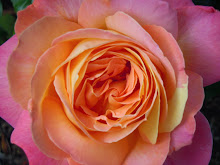Christmas
was a very special time for the Peterson family. Christmas Eve was
always spent in Grandmother Peterson’s home. After the usual meal
of lutefisk, sylta, potatoes, assorted goodies and fruit soup, the gifts were distributed. Uncle Carl sat in his big leather
Morris chair
(the forerunner of the present-day platform rocker). The “height” of the evening was reached when the little white
envelopes from Uncle Carl were distributed. During the war years,
each of us kids received $18.75 to buy a war bond. The adults
received larger amounts.
One
year an envelope appeared with the caption “Ego” written on it.
We didn’t know what it meant, but soon figured out that it belonged
to Uncle Carl. This was one of the only times that I can recall when
there was a sign of levity on his part. On Christmas Eve, it was his
responsibility to read the Christmas story from the Gospel of Luke at
our family gathering in the Peterson home. I can still hear him
reading in a somewhat monotonous tone of voice “And in those days
there went out a decree . . .” Following this reading, we sand
Christmas carols and a Swedish hymn, “Glada Julafton, Harliga,
Klara [Happy Christmas Eve, My friend, Clara”].
Christmas
morning the schedule was to go to the early 6:00 a.m. “Julotta”
service. In earlier years, this service was preceded by a Swedish
service that began at 5:00 a.m. I can remember sitting through that
service not understanding a word, and then after that, sitting
through the English service. The one thing that stands out in my mind
about the English service was that as the first strains of “AllHail to Thee O Blessed Morn”
were played on the organ, Uncle Carl, who sat in the front pew of the
church, would rise to his feet. In those days most all hymns were sun
sitting down, but Uncle Carl rose up to sing this meaningful
Christmas hymn.




